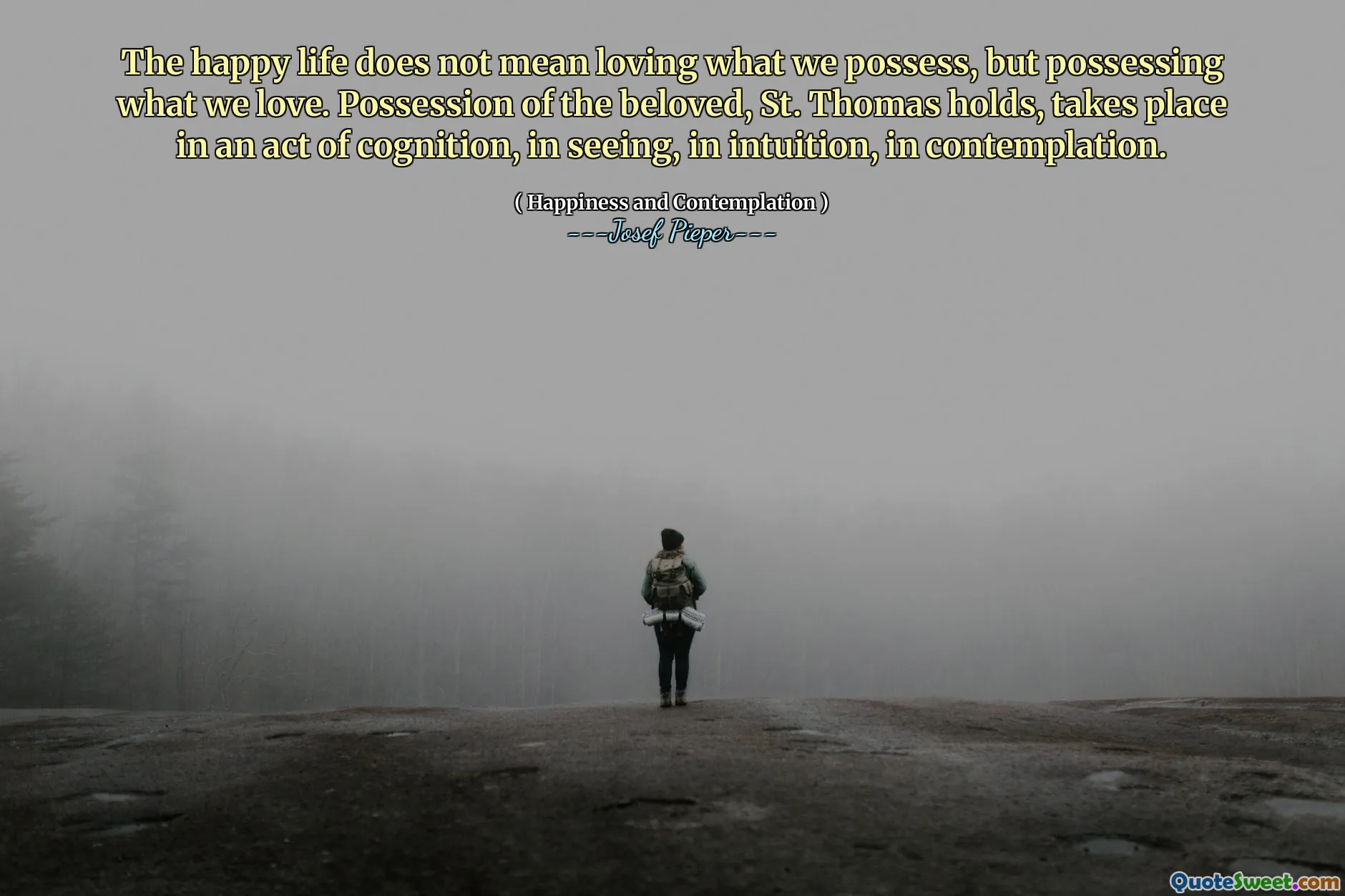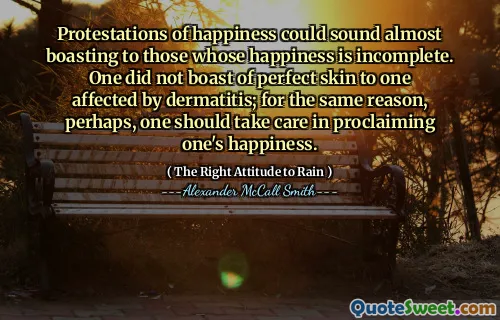
The happy life does not mean loving what we possess, but possessing what we love. Possession of the beloved, St. Thomas holds, takes place in an act of cognition, in seeing, in intuition, in contemplation.
This quote emphasizes that true happiness is rooted not in the mere accumulation of possessions or external goods, but in the genuine connection and understanding of what we cherish. Often, modern society equates happiness with material wealth or tangible assets, but this perspective suggests that real fulfillment arises from a deeper grasp and appreciation of our pursuits and passions. The phrase 'possessing what we love' implies a relationship founded on awareness and intentionality, rather than superficial ownership.
Drawing from the insights of St. Thomas, the quote underscores that possession, in a meaningful sense, is an act of cognition—attained through seeing, intuition, and contemplation. It's about understanding and truly perceiving the essence of what we value. Such an approach shifts the focus from external validation to internal clarity and insight. Engaging in contemplation allows us to connect more profoundly with our passions and the objects of our love, fostering a sense of harmony and contentment that material acquisitions cannot provide.
In essence, happiness rooted in contemplation encourages us to cultivate mindfulness and awareness of our inner experiences and values. It advocates for a life where love and understanding transcend superficial ownerships, leading to a more authentic sense of fulfillment. Recognizing the importance of perceiving wisely and contemplating deeply enables us to align our lives with what genuinely matters, leading to a richer, more meaningful existence.
Happiness, therefore, is an internal state shaped by the clarity of our perceptions and the depth of our understanding. By engaging in acts of cognition and contemplation, we can attain a sense of possession that is rooted in love and insight, rather than material gain.






